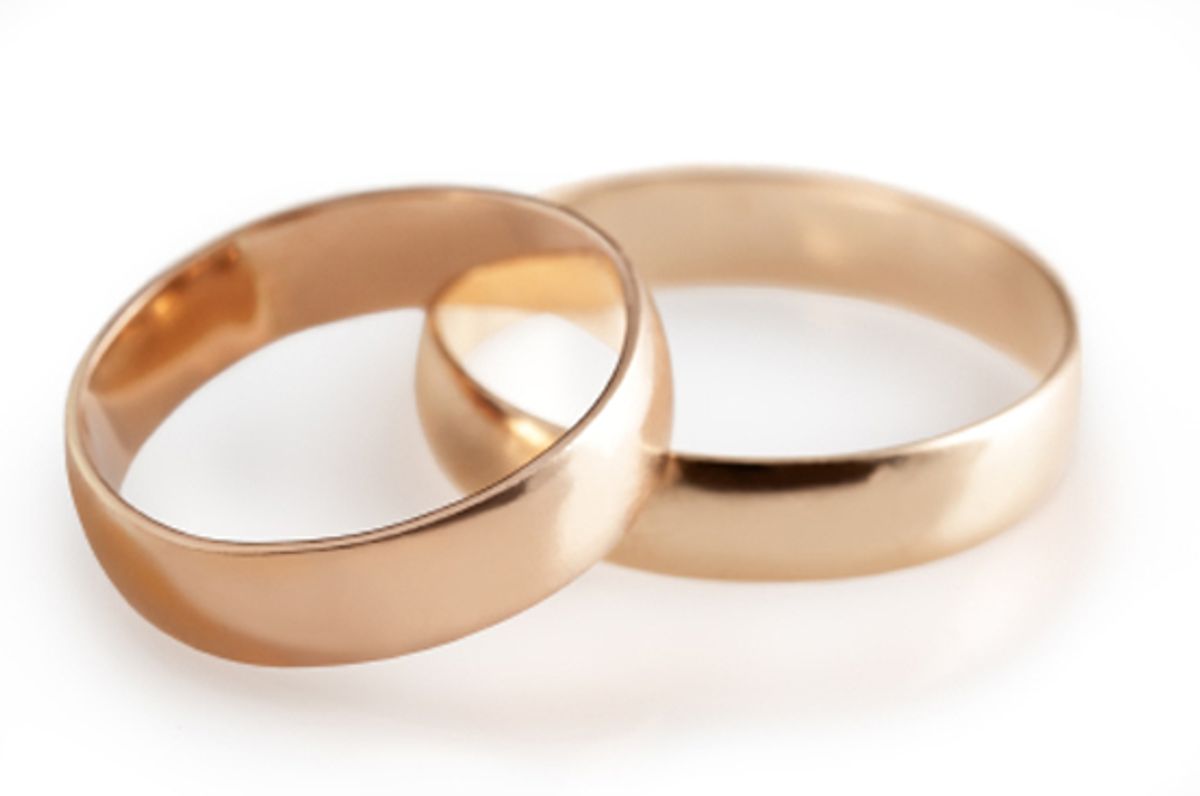Next month, Tom Freeman and Katherine Doyle are heading to their local town hall in Islington, London to file for a civil partnership. They fully expect to be turned away -- the unions are reserved for same-sex couples -- and that's the point. The stunt is part of the Equal Love campaign: On November 9, several straight couples will be doing the same, along with gay couples who will be applying for marriage licenses. It isn't just a stunt to draw attention to marital inequity, though: The pair say they don't want any part of an institution that discriminates against same-sex couples, and yet they do want to make a legal commitment to one another.
It might seem an odd fight for heterosexual couples to undertake -- but their preference is hardly unusual. In fact, the unions have proven hugely popular among straight couples in France, where they aren't limited to same-sex partnerships. As the Washington Post reported last year, "It has the air of social independence associated with the time-honored arrangement that the French call the 'free union' but with major financial and other advantages. It is also far easier to get out of than marriage." Civic partnerships also happen to have that added bonus of not excluding people based on sexual preference, and being free from religious ties. It's one way to protest a discriminatory institution and the government's involvement in it. Personally, I'm partial to the model proposed by Michael A. Lindenberger in a piece for Time magazine:
[G]ive gay and straight couples alike the same license, a certificate confirming them as a family, and call it a civil union -- anything, really, other than marriage. For people who feel the word marriage is important, the next stop after the courthouse could be the church, where they could bless their union with all the religious ceremony they wanted. Religions would lose nothing of their role in sanctioning the kinds of unions that they find in keeping with their tenets. And for nonbelievers and those who find the word marriage less important, the civil-union license issued by the state would be all they needed to unlock the benefits reserved in most states and in federal law for married couples.



Shares